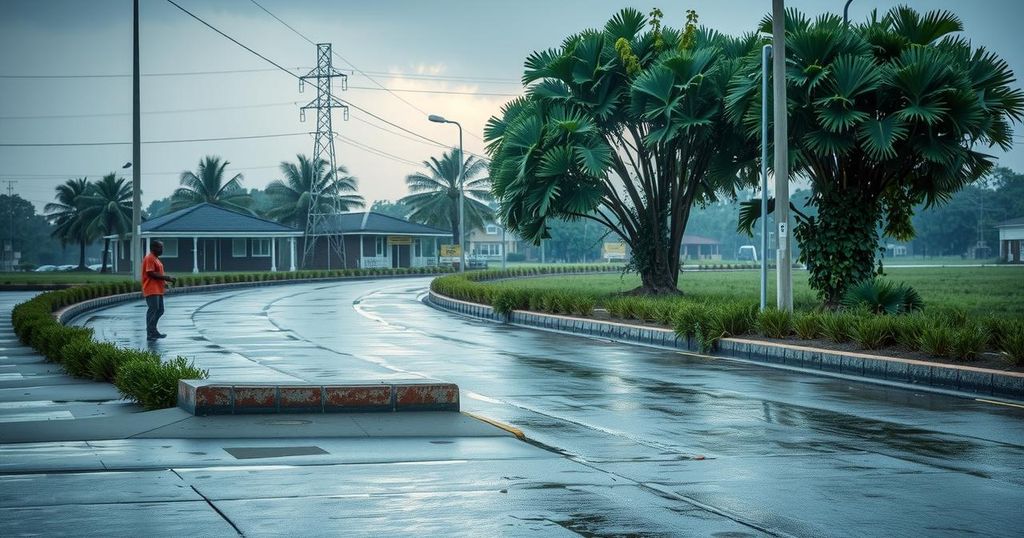Recent reports indicate that climate change is disproportionately affecting Africa, with extreme flooding resulting in significant loss of life and displacement. A collaboration of scientists found that human-induced climate change has intensified these weather events, demanding urgent action to protect vulnerable populations and shift towards renewable energy solutions.
The increasing impact of climate change poses a severe threat to Africa, exacerbating extreme weather conditions, particularly the catastrophic flooding witnessed recently. The World Meteorological Organization has highlighted that by 2030, up to 118 million impoverished individuals in Africa may find themselves facing extreme weather events such as droughts and floods. This year, the rainy season brought unprecedented rainfall, resulting in the tragic loss of over 2,000 lives and the displacement of millions across Sudan, Nigeria, Niger, Chad, and Cameroon.
In an analysis by World Weather Attribution, it was confirmed that human-induced climate change has intensified these flooding events. The report indicated that the severity of seasonal floods in Sudan has doubled and grown more intense by 10% due to rising global temperatures. “These results are incredibly concerning,” asserted Izidine Pinto of the Royal Netherlands Meteorological Institute, emphasizing the continuous increase in flood risks correlating with every fraction of a degree in warming.
Africa’s contribution to global emissions is notably low, yet the continent experiences a disproportionate impact from climate-related disasters. The disproportionate vulnerability of the impoverished is exacerbated by their limited resources to adapt to or recover from the amplified effects of climate change. Efforts are underway to inform policymakers through a collaboration between World Weather Attribution and the United Nations Environment Programme, advocating for a transition to renewable energy sources and building resilience against climate adversities.
In conclusion, the striking increase in flooding in Africa highlights the urgent need for global attention towards climate change mitigation efforts. Strategies aimed at fostering resilience and protecting vulnerable communities are imperative as the continent grapples with the dire consequences of a warming world. The collective effort to shift away from carbon-intensive energy will be a crucial step forward in combating these alarming trends.
The topic of climate change’s impact on Africa is of critical concern, particularly as the continent, despite its minimal contribution to global emissions, faces significant environmental threats. The inherent vulnerability of impoverished populations in Africa, combined with a lack of resources to address climate-related challenges, has drawn attention from international organizations. Recent data illustrates the alarming increase in extreme weather events, suggesting an urgent need for policy reform and sustainable practices to mitigate these pressing issues.
In summary, the alarming increase in extreme weather events, particularly flooding in Africa, necessitates urgent global attention and action. The disproportionate burden shouldered by the continent’s impoverished population highlights the inequities in the climate crisis. Immediate strategies for transition to renewable energy and effective policy implementation are essential to safeguard vulnerable communities.
Original Source: www.thecooldown.com






